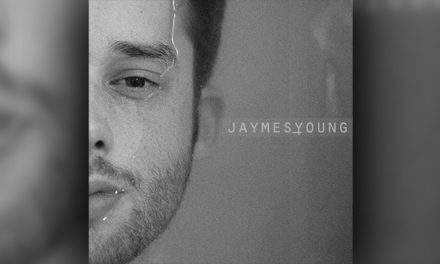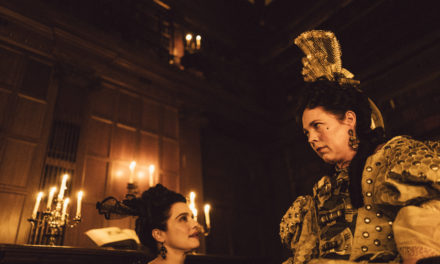Some plays are meant to confuse you. In a staged reading of such a play, it is harder to avoid the audience getting lost. Although the audience didn’t always know whether the events were real or only in the character’s imaginations, Dooley’s Players fared well when they performed a powerful staged reading of playwright Mia Chung’s “You for Me for You” in the MLAO house’s basement from Nov. 15-17.
On Nov. 17, house managers led the audience of about 20 down a sketchy, narrow stairwell into the dimly lit basement. The location made it difficult to see what was happening, as chairs blocked some audience members’ view of the actors, but the complex script and strong acting was this performance’s saving grace.
A staged reading is essentially a read-through of an entire play with scripts in hand and minimal blocking. Many of the stage directions are read aloud, rather than shown visually. In this reading, Dooley’s Players implemented some costumes and props, as well, which was a pleasant surprise.
“You for Me for You” tells the story of two sisters separated at the North Korean border while they are fleeing the country. One sister, Minhee (Jennie Youn, 22C), falls down a well during the journey. The other sister, Junhee (Jessica Le-McKeown, 20C), escapes to the United States to rescue her sister, because the smuggler who helped her flee North Korea said the only person who might be able to re-enter North Korea is “an American.” He also warns her that she must adapt to a new lifestyle because everything moves faster in the U.S. We soon realize that Junhee’s life is, in fact, moving much faster than Minhee’s, and the sisters are separated by time as well as distance — Junhee learns English, gets a job and spends years in the U.S. while her sister is still trying to escape the well and only a few hours have passed. The play itself distorts the audience’s sense of time and reality (a large portion of the play we soon realize is really Minhee’s imagination as she nears death in the well), which, in a staged reading, can be confusing as the progression of events is not as obvious.
Often, the actors looked away from their scripts or carried them through thoughtful blocking. This showed both Pak and the actors’ dedication to a fuller performance, even though it was only a reading. Le-McKeown gave Junhee an innocence and optimism that made the second half of the play fall into place. Junhee’s relationship with Wade (Matthew Takavarasha), a friend and romantic interest whom she met on a street in New York, was a relief from some of the more intense scenes, and the acting by both came off as genuine and refreshing. In the program, Pak states that Le-McKeown is Vietnamese and Irish, and not Korean, but casting Le-McKeown questions the idea of how both societies (North Korea and the U.S.) tend to see in binaries and how Junhee does not fit into either.
Another actor who especially shined was Willis Hao (20C), who played multiple roles. One striking scene was when he played Minhee’s missing husband and she imagines all the horrible things that could have happened to him if he’d been captured by the government — she sees her husband telling her that he’s been tortured, burned alive or forced to watch children being killed. It’s already a very intense and powerfully written scene, but Hao and Youn connected well and played off each other’s intensity.
The play itself sheds a light on two different cultures, while simultaneously showing the bonds Junhee develops despite having a hard time fitting into the culture, and this all crescendos until the sisters finally meet up again at the border after the smuggler gets Minhee out of the well. Despite this reunion, the end of the play parallels the beginning and they are tragically separated once more. Pak did a wonderful job in casting talented actors and pulling together a cohesive and impactful reading, showing us that perhaps it’s alright to be a little confused about what is “real” in a play. In this story, the characters’ relationships with each other are clear and real whether or not the situations are revealed to be so, and that makes it even more powerful.





